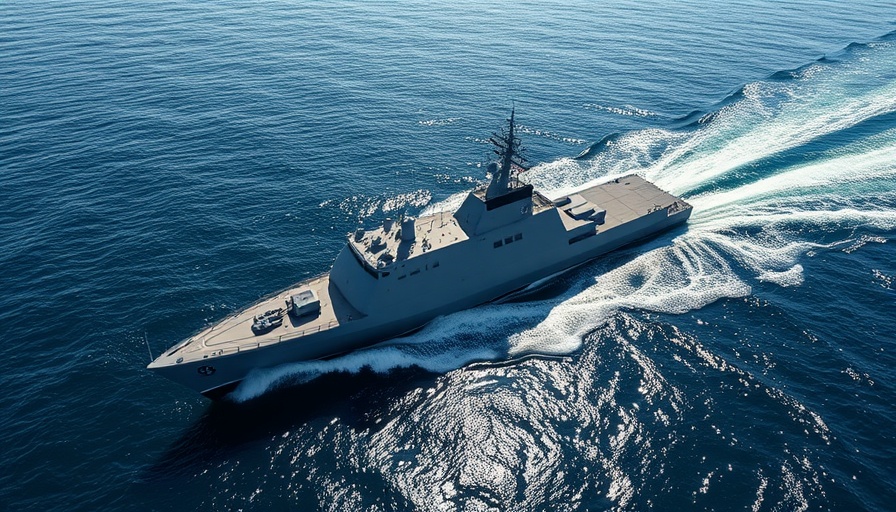
Celebrating a Milestone: The Final Independence-Class LCS
Austal USA has marked a significant achievement by delivering the final Independence-class Littoral Combat Ship (LCS) to the U.S. Navy. This delivery not only symbolizes the culmination of a series of important naval constructions but also reinforces the vital role of innovation in naval defense technology. As part of a strategic effort to enhance naval capabilities, these ships are designed to operate in near-shore environments, thereby increasing the Navy's versatility in various operational contexts.
Reflecting on the Impact of the Independence-Class
The Independence-class LCS fleet has been characterized by its unique trimaran design, which sets it apart from other vessels in the Navy’s fleet. This design provides increased speed and maneuverability, making the ships better suited for shallow waters. The operational advantages of these vessels extend beyond mere capability; they represent a pivotal shift in naval warfare strategies, allowing for enhanced engagement with diverse threats.
Building for the Future: Opportunities and Innovations
The completion of the Independence-class program paves the way for future innovations in naval shipbuilding. As challenges in maritime security evolve, the need for adaptable and resilient ships becomes ever more critical. The success of the Independence-class serves to motivate shipbuilding firms to invest further in research and development. Emerging technologies in automation and green shipbuilding practices could provide significant benefits, making future naval fleets both more effective and environmentally sustainable.
Community Involvement: The Human Element
Moreover, the path leading to this milestone has fostered strong community ties, particularly in the Mobile, Alabama region, where Austal USA operates. Local shipyard employees and their families have witnessed firsthand the growth and development of this program over the years. This connectivity contributes not just to economic stability in the area, but also to a sense of pride among those involved, showcasing the profound effect that shipbuilding has on local communities.
Looking Ahead: The Future of Naval Warfare
As the Navy continues to advance its fleet capabilities, the lessons learned from the Independence-class LCS will inform future designs. Experts speculate that upcoming vessels will incorporate even more advanced technologies, with an emphasis on AI integration for strategic decision-making and autonomous operations. This evolution reflects a broader trend in global naval forces, prioritizing not just power but adaptability and efficiency.
Taking Inspiration from the Journey
The story of the Independence-class LCS encapsulates a journey of collaboration, innovation, and community engagement. It reminds us that progress in technology often requires collective effort and visionary thinking. For those interested in maritime defense and shipbuilding, these developments inspire not just awe but also a call to action; for innovation is never static. As shipbuilders continue to rise to the challenge, the future of naval defense looks promising.
While there may not be a specific call to action tied to this article, the story of Austal USA serves as a reminder of the potential we all have to contribute to our workplaces and communities. Whether it’s through collaboration or innovation, every small step counts towards achieving significant milestones.
 Add Row
Add Row  Add
Add 




Write A Comment